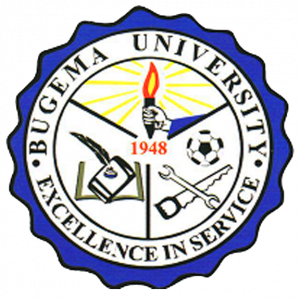- Semester One 2023-2024: Akeen Adut
- Semester One 2023-2024: MASON AHURRA
- Semester One 2023-2024: JOANITA AKOTH
- Semester One 2023-2024: Ngor Akuol
- Semester One 2023-2024: NYOK AMUOR
- Semester One 2023-2024: PEACE AWIDI
- Semester One 2023-2024: ENOCK BUSOBOZI
- Semester One 2023-2024: Ezibai Daborah
- Semester One 2023-2024: GEOFFREY EPIT
- Semester One 2023-2024: DEBORAH IFEDILCHUKWU
- Semester One 2023-2024: DENG MAKUEI
- Semester One 2023-2024: John Musana
- Semester One 2023-2024: REHEMA NJOREGWA
- Semester One 2023-2024: LAM ROK
- Semester One 2023-2024: AJAK YAR
This first part of the foundation biology is an introductory course that covers the particulars of cell and tissue biology. A number of topics will be explored. These include prokaryotic and eukaryotic cell structure and function, organelles, biological membranes, cell division mitosis and meiosis, transport across membranes, and tissue types. There will be an introduction to genetics and an introduction to evolution. Students will benefit from a blended mix of taught classes, laboratory practicals, and independent study. Laboratory sessions are expected to reinforce theory and instill sound laboratory practices. Practicals should enable students to increase their competence in numeracy, ICT, communication, teamwork and independent learning skills.
- Semester One 2023-2024: Akeen Adut
- Semester One 2023-2024: MASON AHURRA
- Semester One 2023-2024: JOANITA AKOTH
- Semester One 2023-2024: NYOK AMUOR
- Semester One 2023-2024: PEACE AWIDI
- Semester One 2023-2024: ENOCK BUSOBOZI
- Semester One 2023-2024: Ezibai Daborah
- Semester One 2023-2024: GEOFFREY EPIT
- Semester One 2023-2024: DEBORAH IFEDILCHUKWU
- Semester One 2023-2024: DENG MAKUEI
- Semester One 2023-2024: John Musana
- Semester One 2023-2024: REHEMA NJOREGWA
- Semester One 2023-2024: LAM ROK
- Semester One 2023-2024: AJAK YAR
Chemistry is the science of everyday life. The subject enables us to explain properties of substances, their structures and the changes they undergo. Consequently, chemistry is a pivotal subject in the study of biological sciences. The course allows students to see the application of Chemistry to a number of science-based disciplines. The first course covers a wide range of fundamental concepts in physical chemistry including: atomic and nuclear structure, bonding and structure, energetics, thermodynamics, kinetics, equilibrium, acids and bases and redox reactions and also provides a brief introduction to inorganic chemistry.
- Semester One 2023-2024: MASON AHURRA
- Semester One 2023-2024: JOANITA AKOTH
- Semester One 2023-2024: NYOK AMUOR
- Semester One 2023-2024: PEACE AWIDI
- Semester One 2023-2024: ENOCK BUSOBOZI
- Semester One 2023-2024: Ezibai Daborah
- Semester One 2023-2024: GEOFFREY EPIT
- Semester One 2023-2024: DEBORAH IFEDILCHUKWU
- Semester One 2023-2024: DENG MAKUEI
- Semester One 2023-2024: John Musana
- Semester One 2023-2024: REHEMA NJOREGWA
- Semester One 2023-2024: LAM ROK
- Semester One 2023-2024: AJAK YAR
This second foundation course in biology is designed to provide introduction to the biological sciences, through the study of basic biochemistry, selected body systems, ecology and reproduction. It also introduces some of the relevant tools and techniques used in modern biology. Through this course, learners will appreciate that the study and practice of biology are affected and limited by many factors including social, economic, technological, and ethical as well as cultural factors. They will be suitably prepared for further studies in biological sciences. The course will be delivered through a combination of theoretical lectures, problem-solving tutorials and laboratory-based practicals. Laboratory sessions will be included to enable students increase their competence in numeracy, ICT, communication, teamwork and independent learning skills.
- Teacher: Joseph Nsubuga
The course will look at what the environment is, relating it to the physical and biological sciences, social sciences and humanities. Major focus will be on, air pollution and regulation, and air quality and atmospheric science, water pollution and causes, including the water cycle. Other water issues such as droughts and water scarcity, floods, dams and water diversion will be covered. Next, it will look at waste and recycling, toxic waste, toxins and toxicity, deforestation and afforestation, agriculture and food, including challenges involved. Finally, it will focus on global warming with emphasis on causes and the issues of politics, economics and the environment. Environmental impact assessment (EIA) will be covered.
- Semester One 2023-2024: Verah Nabifo
Chemistry is the science of everyday life. The subject enables us to explain properties of substances, their structures and the changes they undergo. Consequently, chemistry is a pivotal subject in the study of biological sciences. The course allows students to see the application of Chemistry to a number of science-based disciplines. This second course in Foundation Chemistry covers a wide range of fundamental concepts in Organic Chemistry and also provides an introduction to analytical techniques that are used to investigate organic compounds. The course will be delivered through a combination of theoretical lectures, problem-solving tutorials and laboratory-based practicals. Laboratory sessions are expected to reinforce theory and also instill sound laboratory practices. Practicals should enable students to increase their competence in numeracy, ICT, communication, teamwork and independent learning skills.

